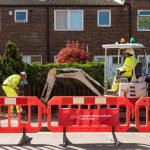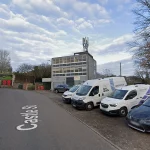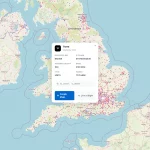SNP 2024 Manifesto Preps Statutory Broadband and Mobile Social Tariffs

The Scottish National Party (Pàrtaidh Nàiseanta na h-Alba) has today published details of their 2024 Manifesto for the 4th July UK General Election, which sets out plans for a seemingly cheaper “statutory” social tariff for broadband and mobile services.
The SNP is the current party of government in Scotland and therefore we already know something about their approach to digital infrastructure, which is being headlined by their £600m Reaching 100% (R100) project. The R100 scheme largely involves working with Openreach to extend “full fibre” (FTTP) networks to another 114,000 premises – in areas that lack access to “superfast broadband” (30Mbps+) – by 2027/28.
In addition, they’re also in the process of harnessing an investment of £450m from the national £5bn Project Gigabit programme (example), which should help to spread 1Gbps broadband speeds into some of the most remote rural areas of Scotland (benefitting up to around 410,000 premises). But this is a UK government programme and so doesn’t count as one of the SNP’s own policies.
Advertisement
Suffice to say that we were interested to see what today’s SNP 2024 Manifesto (PDF) document might contain, at least in terms of any new commitments for digital infrastructure. This is particularly true after all the recent talk of a social tariff for broadband and mobile (here), which caused a bit of controversy because such tariffs already exist (Guide to UK Social Tariffs) and it’s unclear how the SNP’s approach would differ.
The bad news is that their document doesn’t add much to yesterday’s news. The only mention of broadband and mobile connectivity in the whole document was this little sentence: “Call for a statutory social tariff for energy, broadband and mobile charges for all who need one.” The key bit of new detail here is that use of the word “statutory“, while the current social tariffs have all been introduced under a voluntary model.
However, it remains unclear whether the SNP would force all ISPs to adopt one or only the largest players, as well as what practical differences the SNP may ask providers to make. Not to mention the question of how ISPs will introduce a tariff that, if required to be different, may only be available to people in Scotland. The latter would be tedious for ISPs to juggle, especially around the border communities, where the dividing lines of availability could become contentious or confusing.
Mark is a professional technology writer, IT consultant and computer engineer from Dorset (England), he also founded ISPreview in 1999 and enjoys analysing the latest telecoms and broadband developments. Find me on X (Twitter), Mastodon, Facebook, BlueSky, Threads.net and Linkedin.
« Rydal Group Acquires UK Telecoms Provider My Communications Ltd






















































‘Ugh, we all know how Mark REALLY votes then’ [sarcasm intended]
Is that really required..? They will all get their chance when push comes to shove.
@Anonymous
It’s a running joke, the first party to release their broadband pledge was the Liberal Democrats, thus was the first party to be covered by ISPR.
‘Dobby’ unironically responded to the Liberal Democrats article with “I guess we now know who Mark supports ”
Hence the clearly indicated **sarcastic** repetition.
Still waiting on my free bike from the snp so wouldn’t hold your breath